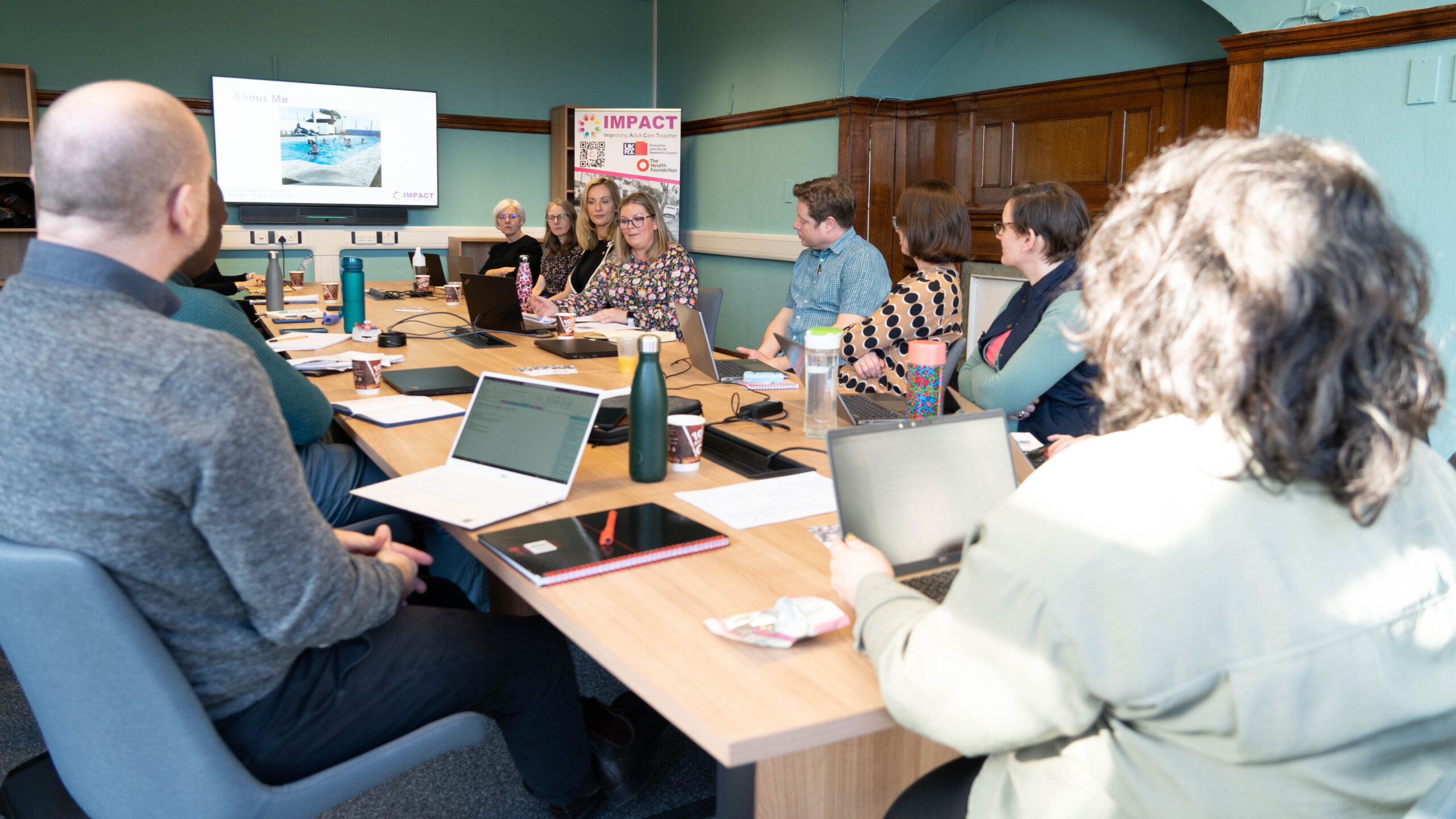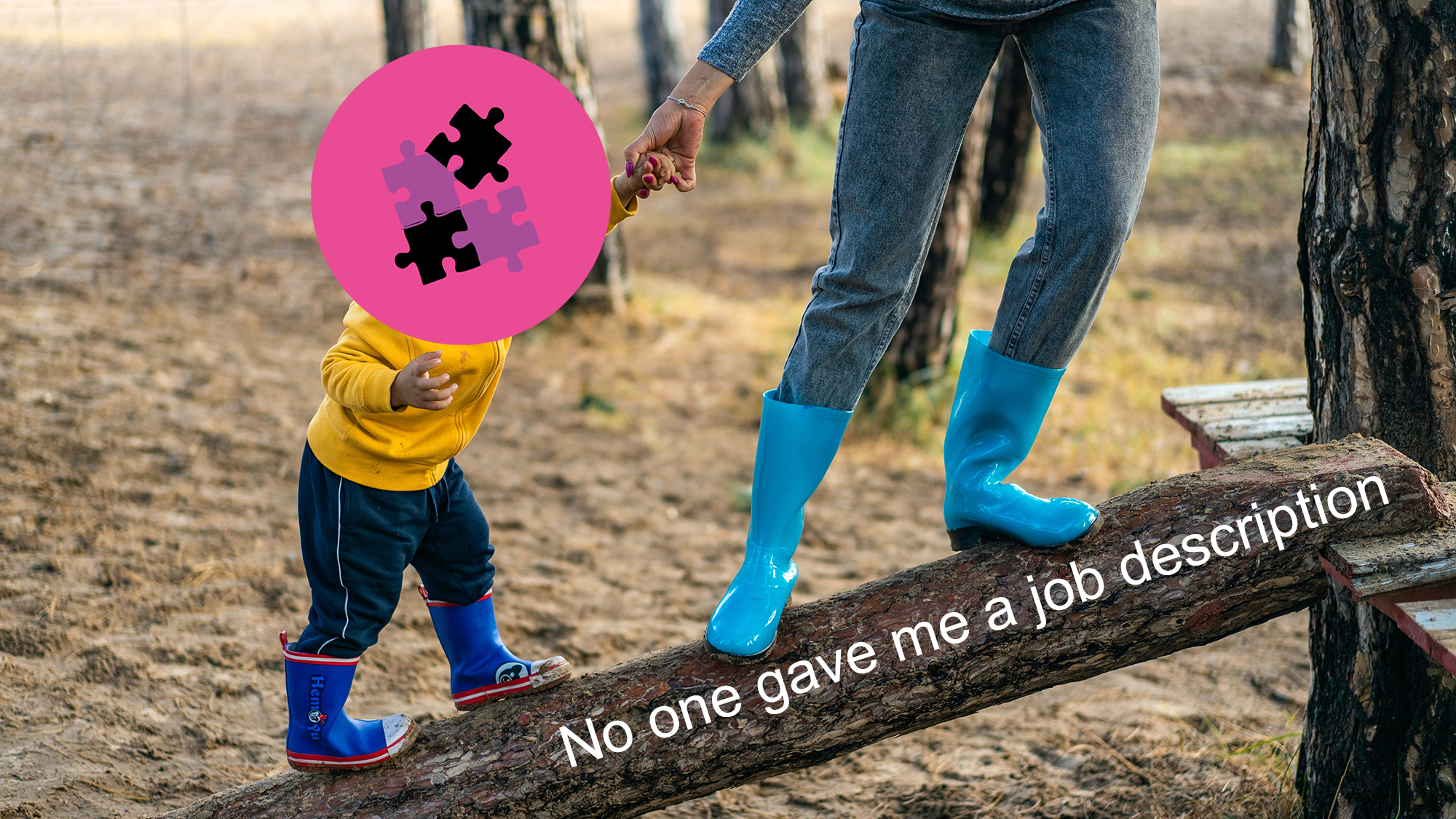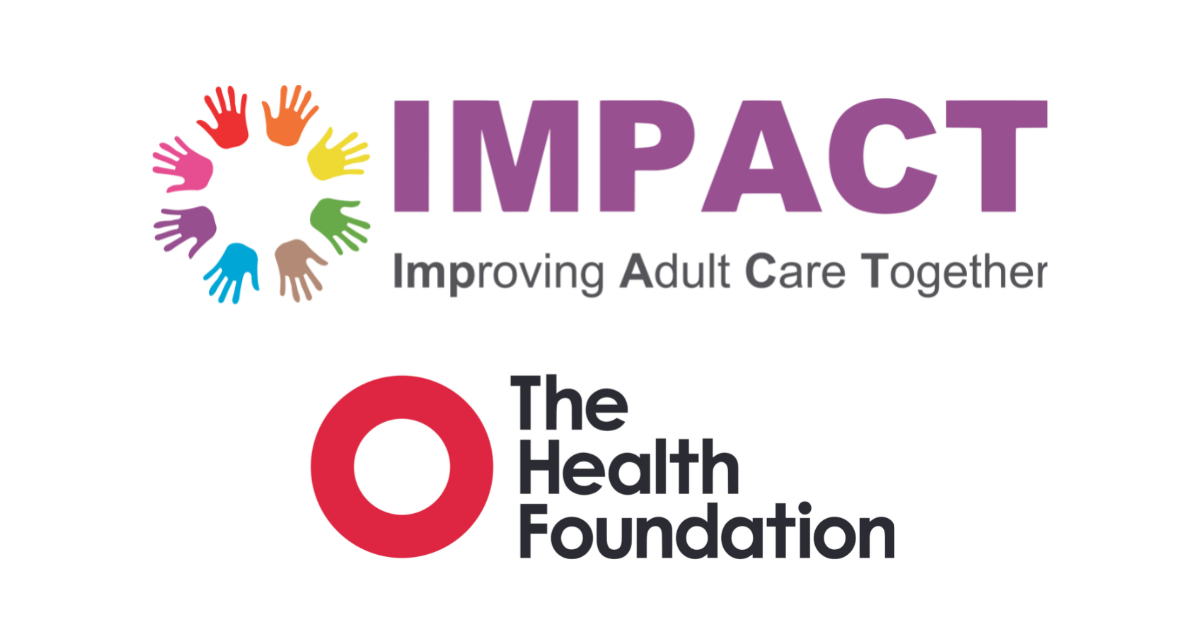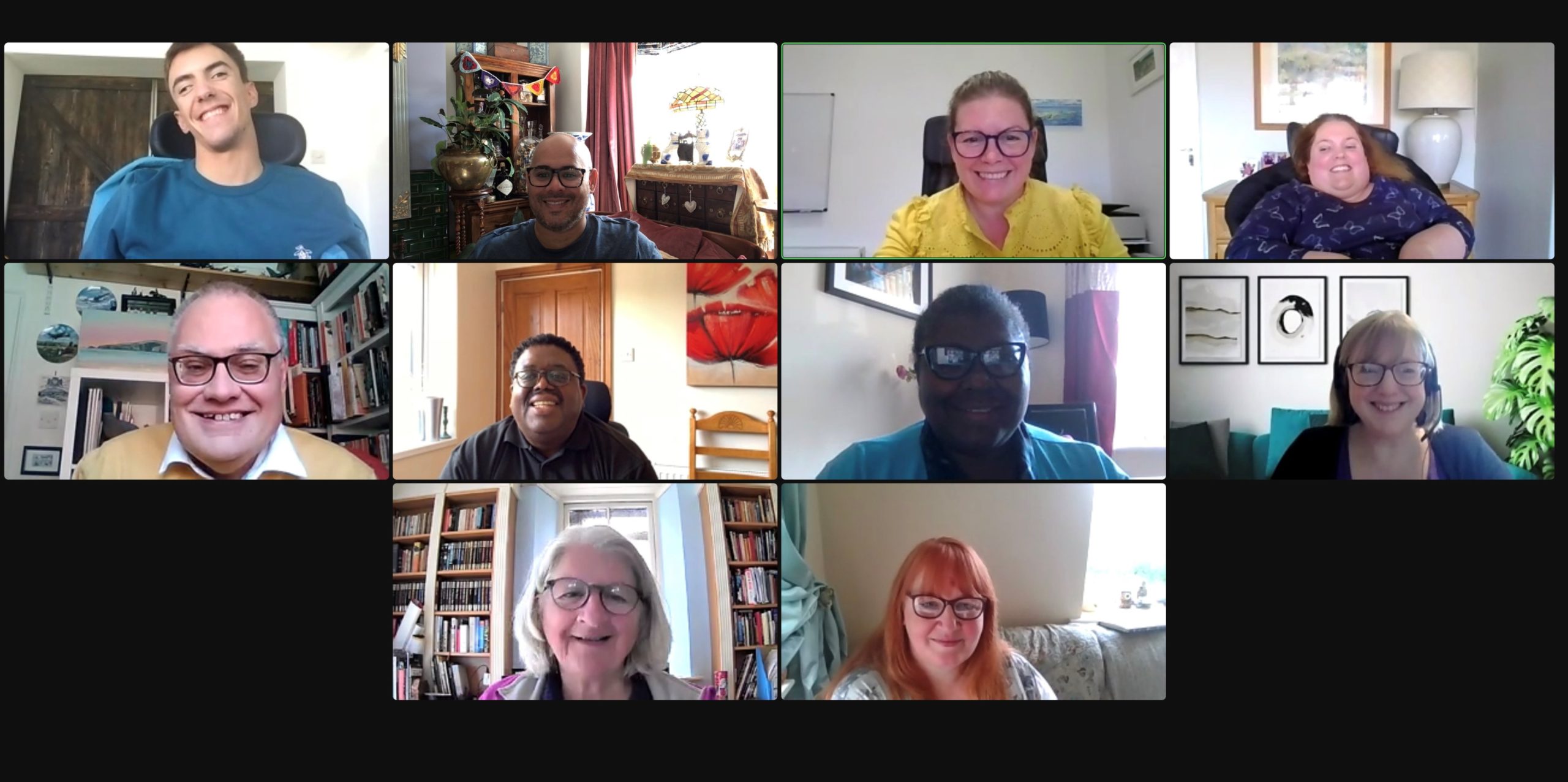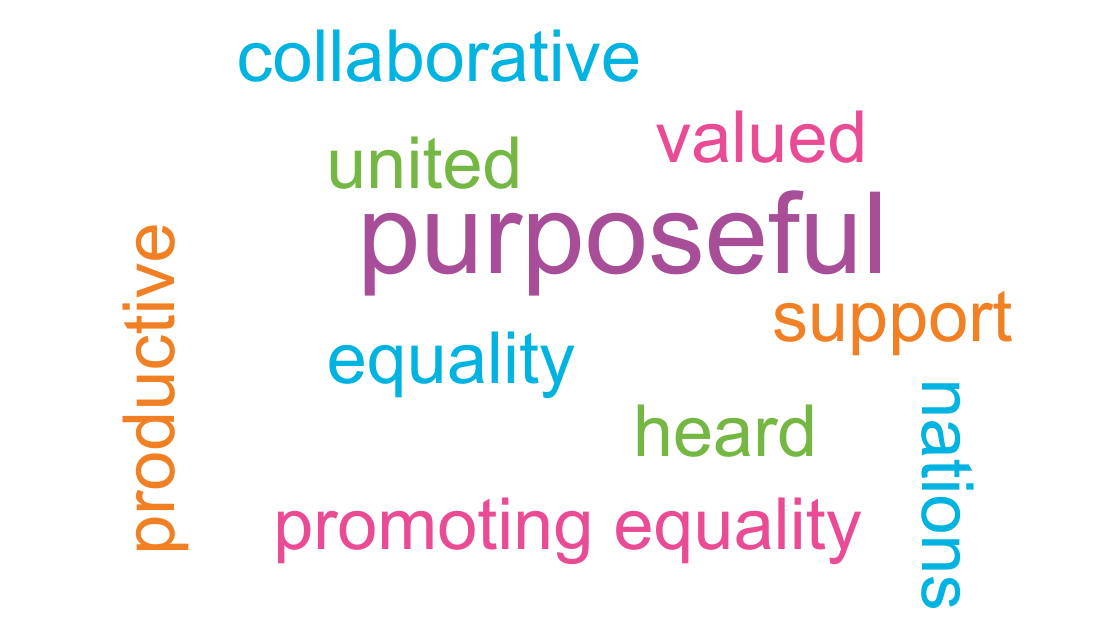Earlier this year, IMPACT’s Co-production Advisory Group had the pleasure of meeting and engaging with The Health Foundation Inclusion Panel. This created an opportunity for IMPACT to focus on building relationships between organisations. Early in the process we agreed this would be a two-way engagement and we would focus on the theme of co-production. The detail of what that would look like took a little longer to decide.
Co-producing an event
We agreed to co-produce the preparation and delivery of our co-production themed event, involving two members of each group plus the coordinator of each group. Narrowing down such a big topic is challenging – it can be time consuming and a little messy, but this is time well spent. As co-production means different things to different people, it involves accommodation and relationship building, seeing things from alternative perspectives and not being prescriptive. Not being prescriptive means that it can take time to tease out the theme and agree on questions to address and perhaps working in a way that’s different from what we are used to.
Happy to say I’m quite reassured it’s come a long way. I didn’t think you would get there, well done guys! Testament to real coproduction in action.
Isaac Samuels, member of the Co-production Advisory Group
Building relationships for a successful approach
Cohesiveness, trust, and building relationships takes time for groups. This applies internally to groups and in external engagement. This is an ongoing challenge when time to co-produce, plan and deliver is limited or restricted by the reality of projects and work programmes.
A takeaway for me was the importance of building relationships to ensure effective co-production.
Ann Marie Penman, member of the Co-production Advisory Group
As a fledgling group meeting, engaging, sharing and learning with an established group was insightful. We are at different points in our journeys – we are starting out on our journey and the Health Foundation Inclusion Panel is working out its path for a sustainable and productive future. The experience of meeting a more established group reinforced the point that relationships, group trust and dynamic takes time to build. The sense of family and community from the well-established Health Foundation Inclusion Panel was palpable. This was inspiring and settled us as a group that we are right to spend time on building relationships and trust within our group.
In the practical sense, the process of co-producing the joint event has prompted us to try this approach in our preparation and meeting delivery. Until this point, we were somewhat self-critical of our own approach – a ‘knowing’ that we weren’t quite there but not quite sure how to get where we want to be.
Reflections
I am very proud of our work as the Co-production Advisory Group in 2022, particularly our ability and willingness as a group to be flexible, listen to each other, to feedback and most importantly to act upon it. Building relationships involves building trust and confidence. This takes time. A key takeaway from this meeting is co-producing the preparation, delivery and follow up. We are implementing this approach in our workplan for 2023.
Karen McCormick, Lived Experience Engagement Lead
My own reflections were about how important it is to consider the whole process in effective co-production. That is, thinking about before, during and after i.e. how do we make sure we give the opportunity of involvement to everyone, how do we bring people together in a suitable space (physical and otherwise) and how are people kept involved and updated afterwards? A lot of our discussions focused on the being together part, but I think it’s important not to lose site of the ‘before’ and ‘after’.
Ann Marie Penman, member of the Co-production Advisory Group
Relationship building extends beyond the relationship between two groups. Bringing in another group can somewhat shift the dynamic within our own groups. Sharing lived experiences and a passion for co-production with another group was empowering for members of IMPACT’s Co-production Advisory Group, a sense of shared purpose, a healthy respect and acknowledgement of the perspective of others.

